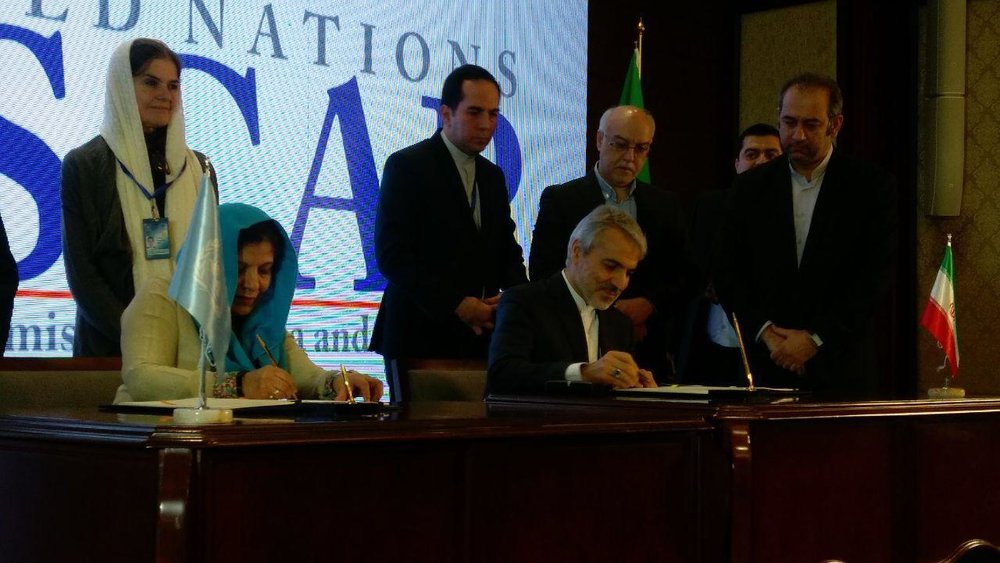APDIM raises hopes of addressing sand and dust storms in Iran

TEHRAN — The Asian and Pacific Centre for the Development of Disaster Information Management (APDIM) can bring hopes for tackling sand and dust storms in Iran.
Concurrent with the United Nations High-level Regional Conference on Information Management for Disaster Risk Reduction and Resilience on January 30, APDIM inaugurated in Tehran.
The United Nations Economic and Social Commission for Asia and the Pacific (UNESCAP) conference, being held in Tehran from January 30-31, discusses specific issues of information management for disaster risk reduction and resilience from the perspective of regional cooperation. It comprises two parallel high-level expert consultations on regional cooperation for combating sand and dust storms and on information management for risk-informed development.
An agreement, concerning financial and administrative aspects of APDIM inauguration in Tehran, was signed between head of Iran’s Management and Planning Organization, Mohammad Baqer Nobakht, and the UN Under-Secretary-General, Shamshad Akhtar on the first day of the event.
According to UNESCAP official website the expert consultation on regional cooperation for combating sand and dust storms in Asia and the Pacific review ESCAP’s study on regional cooperation and examine its feasibility for implementation based on national, regional and global efforts and recent country experiences in advancing sand and dust storms mitigation and adaptation; deliberate on the form and contents of the Asia-Pacific Sand and Dust Network; and explore expanded partnerships.
The expert consultation on information management tools and approaches for risk-informed development in Asia the Pacific also share practices and lessons in and deliberate on the Asian and Pacific Centre for the Development of Disaster Information Management’s (APDIM) –program of work on disaster databases; spatial data infrastructure; tools and approaches for risk-informed decisions; and geospatial solutions and regional information services for transboundary disasters.
The outcomes of the expert consultations will be brought to the attention of APDIM Governing Council which convene its second session on 31 January 2018 in Tehran and will be instrumental in shaping the future regional cooperation in sand and dust storms and disaster information management.
APDIM increases chances of experience exchange
Iran is environmentally vulnerable and can use the experiences of other countries in dealing with such challenges by information management for disaster risk reduction and resilience within the framework of regional cooperation, Farzam Pourasghar, head of environment office of Budget and Planning Organization, said, Department of Environment official website reported on Tuesday.
As regional countries share ecological and climatic characteristics sharing and exchange of knowledge and information can play a significant role in tackling the issue, Pourasghar said, stating, there is an untapped potential in the region which can be developed by the establishment of the APDIM.
Environmental challenges, such as sand and dust storms, usually cause problems locally at first and ignoring them would turn them into regional predicaments, he noted.
Not all environmental problems are human induced but we hope that the establishment APDIM would help speed the process of abating sand and dust storms in southwestern Iran and the whole region, he concluded.
MQ/MG
